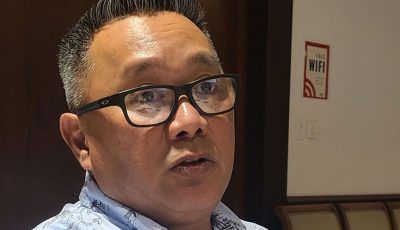HANMI: Increasing cap needed to support economy
The Hotel Association of the Northern Mariana Islands said increasing the cap of the CNMI-Only Transitional Worker nonimmigrant visa program is needed to support the rapid economic growth that the Commonwealth is experiencing right now.
HANMI chair Gloria Cavanagh, in a statement sent to the media last Tuesday, said the increase in the number from the cap from 12,998 to 18,000 would fill the expected need of workforce with a number of establishments being developed.
“We asked for an increase of our CW1 quota, which has been eaten up by the influx of construction workers for new development and to consider an extension of the transition period,” said Cavanagh in her statement.
“We believe that the quota was set for operation staff. We are experiencing rapid growth in our economy and there is a need for increased labor force for our new developments. We are at a very dangerous stand still with our labor market.”
“Growth or sustaining [the] economy. There should not be a choice. In order to offer a better economy for our people, we need both. However, we cannot have both with such an unrealistic cap,” added Cavanagh in the statement.
She represented HANMI and the tourism sector being a Marianas Visitors Authority board member in last week’s oversight hearing of the U.S. House of Representatives’ Committee on Natural Resources, headed by Rep. Rob Bishop (R-Utah, 1st District), in Washington, D.C.
Gov. Ralph DLG Torres also attended the hearing along with Saipan Chamber of Commerce executive director Jill Arenovski, president Velma Palacios, and secretary Alex Sablan, who also represented the Strategic Economic Development Council.
Torres and Alex Sablan spoke in front of the committee with the latter presenting a collective position in the oversight hearing on House Resolution 5888 introduced by Delegate Gregorio “Kilili” Sablan (Ind-CNMI).
Cavanagh said they are hoping for a positive result after Bishop and other committee members seemed open to the idea of what they presented. “We all went with our respective associations bearing the costs of the tickets. HANMI did so because we know that this is very important in order to sustain our only economy.”
“We find the committee to be very responsive and now wait for so much needed relief. We are hoping for good news. It was extremely important to get the players that represent the CNMI business community as a whole, not just one specific industry,” she added.
“Our main point was to inform our leaders of the U.S. Congress about the labor woes we are experiencing in the CNMI. We as a group have been working together with our U.S. Congressman Killili’s office on this since the news of the 2016 cap being reached on May 5 this year,” Cavanagh said.
MVA needs funds
She also said in her statement that HANMI is disappointed and opposed on the Senate version’s proposal of cutting the Marianas Visitors Authority’s budget by $1.5 million and allocating it to other officers and programs.
Cavanagh said they lobbied the Legislature in 2013 to increase the hotel occupancy tax from 10 to 15 percent where MVA would use 80 percent of the funds for the operations of its off-island marketing offices, overseas and CNMI promotional activities, and destination enhancement. She added that the three points are “critical for the survival of the hospitality market on Saipan.”
“This was a decision by the HANMI board at the time in order to ensure that the CNMI does not again fall behind in its only economy, tourism. As the funding rolled in, the Legislature again and again saw it fit and justified to reduce this very important funding,” said Cavanagh, who even quoted MVA chair Marian Aldan-Pierce “it takes money, to make money.”
She said that the MVA board and its entire staff are working diligently to prioritize funding to areas that would benefit the CNMI economy. “It is my understanding that in 2016, MVA has appropriated funding over the required percentage for destination enhancement.”
“MVA assists programs from all departments of the Government for items that deal directly and indirectly with the tourism economy through its destination enhancement committee,” Cavanagh said.
She added the MVA was in huge debt in operating its overseas field offices before the hotel occupancy tax was increased. “[The] MVA was in huge debt to our offshore offices and very limited to funding for the exposure of the CNMI as a travel destination. Today this is not the case.”
“With this adequate funding, we saw the results almost immediately. However, to think that is solved, is quite wrong. We believe that the irresponsibility to reduce and take away from these earmarked funds when the market is healthy is exactly that, irresponsible,” she added.
Cavanagh said that nowhere in the world do successful destinations treat their sole economy so haphazardly. “We must not take advantage of today’s market foregoing the unpredictability of tomorrow’s challenges.”
Cavanagh said the money is from the generated revenue that finances the general fund and reduces the government debts of the past. “These funds make money. The HANMI would like to plead with our lawmakers to hear our side.”
“[The] MVA is not a greedy organization that does not share. It is extremely clear that MVA uses its destination enhancement funds to not only improve tourism sites but also to improve our beautiful island and make it safe for our community.”



























